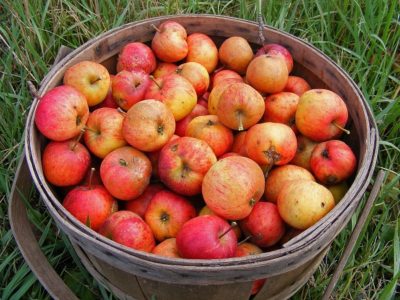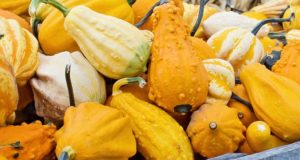
Extra Apples
The average healthy, mature apple tree can produce a few hundred pounds of apples every year. That’s a whole lot of apples! Whether you have your own orchard or have a different source for apples, when summer is near an end and fall is around the corner, you just might be wondering what you’re going to do with all those extra apples.
First off, if you and your family enjoy eating apples just as they are, then make sure you put some aside. Firm, fresh apples can actually be stored upwards of four months or longer if they are in cool temps (32-40 degrees F) and in moderate-high humidity (85 percent or so).
Here are some other ideas:
1. Make Cider or Apple Juice
A very popular way of dealing with extra apples is to make apple juice or cider. You can freeze or can extra juice or cider. Making apple juice or cider isn’t that difficult, but you will need a cider press. Buying a cider press can be a bit expensive but you could probably find one locally for cheap or, better yet, build your own.
There are tons of tutorials on how to build a DIY cider press. Here is one example.
As an added bonus, you can often press other types of fruits in most cider presses.
2. Can Your Extra Apples
Canning is a great method of dealing with extra fruit. Some specific ideas for extra apples include:
- Apple Sauce: A classic that kids and adults both love. Applesauce is pretty easy to make and stores very well.
- Apple Butter: It is similar to apple sauce but far more concentrated, which makes it ideal as an addition to other recipes. Apple butter can be made in a crock pot and then canned as you would applesauce.
- Apple Pie Filling: Having pie filling on hand makes pie-making even easier. Generally, canned apple pie filling will have more flavor than freshly made filling as well. If you’re feeling lazy, you can eat it right out of the jar or make apple pie filling with slightly less sugar for a dessert on its own, with ice cream.
- Apple Chutney: Chutney is more of a savory way to preserve apples than the above options. Many people enjoy apple chutney on roast chicken or pork chips. It is a great way to spice up nearly any dish, particularly meats.

Extra Apples
The four options above are just the tip of the iceberg of what you can do with apples. Most canning recipes are versatile and allow you to use your favorite spices. Canned apples also make a great gift or barter item.
Canning does take time, and you will need other equipment. An apple peeler and corer will really help speed up the process. For the preserving step you’ll need typical canning supplies like jars, a pot for water baths, jar lifter, canning funnel, etc. Canned apple recipes will generally last a year or longer in your pantry. High-sugar recipes will last and taste fresher for longer.
3. Dehydrate Extra Apples
Dehydrating extra apples to make apple chips or fruit leather is a great idea that many people don’t consider. Apples dehydrate pretty well and you can make leather or chips in an oven if you don’t have a dehydrator. Most any type of apple will work well for leather or chips, but most people prefer sweeter apples.
If you go the route of making fruit leather you can easily mix in other extra fruits you have to add more flavor. Fruit leather is literally just pureed fruit, sugar and lemon juice. After pureeing everything you just put it into a 140 degree F oven and bake for 8-12 hours.
Apple chips are also easy to make. Simply peel, core and slice apples, sprinkle some cinnamon sugar over them and bake at 400 degrees F for an hour and a half to two hours.
Fruit leather takes a while to make and isn’t always a good option for homes, since the oven will be off-limits for a day. In that case, a dehydrator works perfectly. It is a versatile machine that you can also use to make jerky, fruit/vegetable chips, dry herbs and so much more. There are many options available in stores and you can also make your own.
(Read our earlier story, How To Build A Simple Solar Food Dehydrator.)
4. Sell, Barter or Trade Them
If you still have extra apples you might want to sell them or trade them, perhaps even for fruits and vegetables you don’t have. The barter system is becoming increasingly more popular in all areas, rural and urban. From a survivalist or simplistic standpoint, bartering and trading is a great way to offload things you don’t need while also gaining something you do need. Being able to help someone while helping yourself is a rewarding experience.
You may also be able to sell extra apples, but check with your local laws first. In some areas you need a permit to sell fruit to the public.
Apples are a favorite fruit of many people and are so versatile to have in the pantry.
What are your favorite ways to preserve all those extra apples? Feel free to share your ideas in the comment section below:
 Off The Grid News Better Ideas For Off The Grid Living
Off The Grid News Better Ideas For Off The Grid Living




